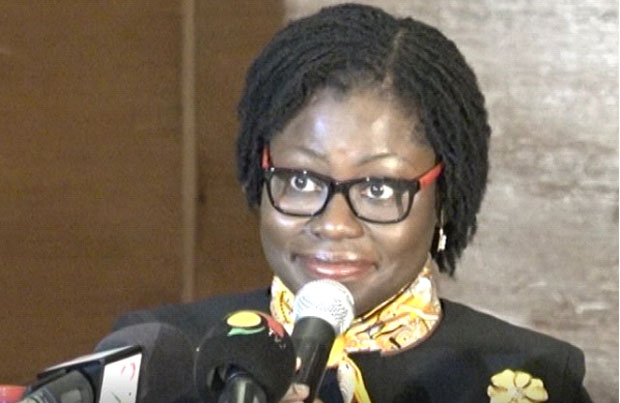Elsie Addo Awadzi, Second Deputy Governor
The Central Bank has hinted that it will come out with a plan of action to restructure uniBank Ghana Limited, one of the 10 local banks that have appealed to President Nana Addo Dankwa Akufo-Addo to give them more time to shore up their stated capital.
Elsie Addo Awadzie, Second Deputy Governor of the Bank of Ghana (BoG), who disclosed this at a Graphic Business/Stanbic Bank breakfast meeting yesterday in Accra, noted: “We have access to all the information we need regarding the state of affairs. We will come out with a plan of action. Customers are bringing in more money. It’s stable and we are working on how to get a better hold with restructuring the bank.”
Local banks have injected funds into entities in the country’s informal sector, most of which have defaulted in repaying their loans.
According to Mrs Awadzi, in spite of the announcement by some banks that they have either met or are about to meet the requirement, her outfit was convinced that the financial institutions would live up to expectation ahead of the deadline of December this year.
She reiterated the call on banks which cannot meet the target to merge.
“But it is against such ‘marriages’ that local banks have appealed for a little more time to allow them study themselves and see where and how they could cope, so as not to create problems.
They also argued that should the Central Bank overlook their appeal and go ahead to implement its directives, a lot of bank staff, who are currently with local banks, would lose their jobs which would increase the unemployment rate in the country.
The Bank of Ghana (BoG) has indicated plans to empower banks to undertake big ticket transactions.
“Foreign owned banks, which do not have the interest of the informal sector at heart because they claim such an area is risky to venture into would only repatriate their profits to their home countries,” the local banks.
Local banks want the Central Bank to extend the implementation of the new requirement to 2022 in order to increase their stated capital.
Head of Corporate & Investment Banking at Stanbic Bank Ghana, Kwamina Asomaning, said the new capital requirement was good for the banking industry.
According to him, even though directors and shareholders of banks want to remain the same for emotional reasons, there were other financial services that banks could divert into if they lose their banking licences by the deadline.
He blamed local banks for lending to businesses despite their inability to pay back their loans.
“Banks need to change their posture and approach to creditors. We have work to do, but we are on the right track.”
Mr Asomaning urged government to shift towards a greater level of capital formation since debt seeking investors have crowded the market while entities that have invested in pledging equity have reduced.
By Samuel Boadi


